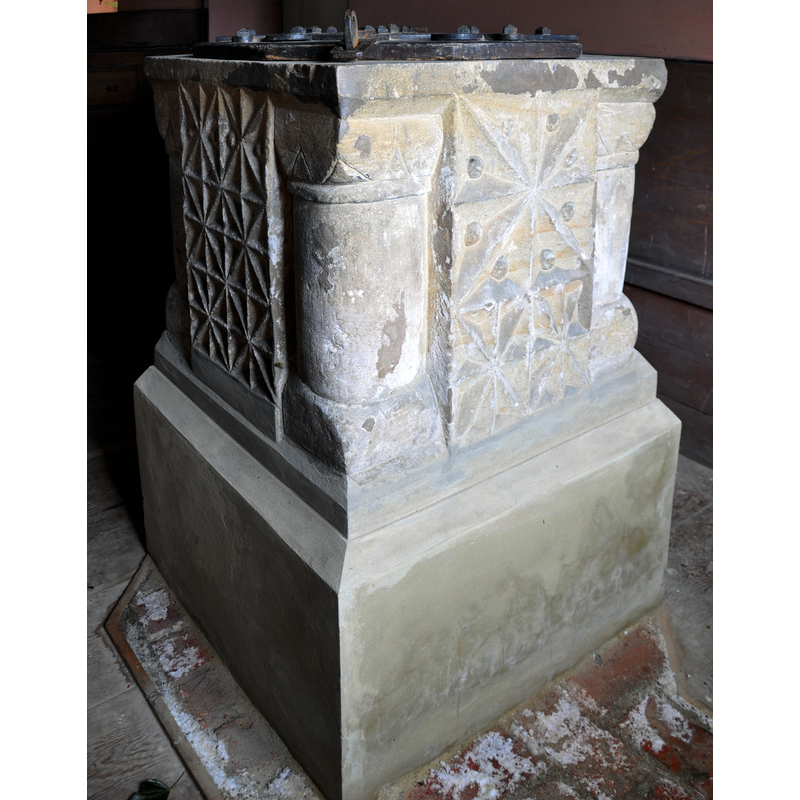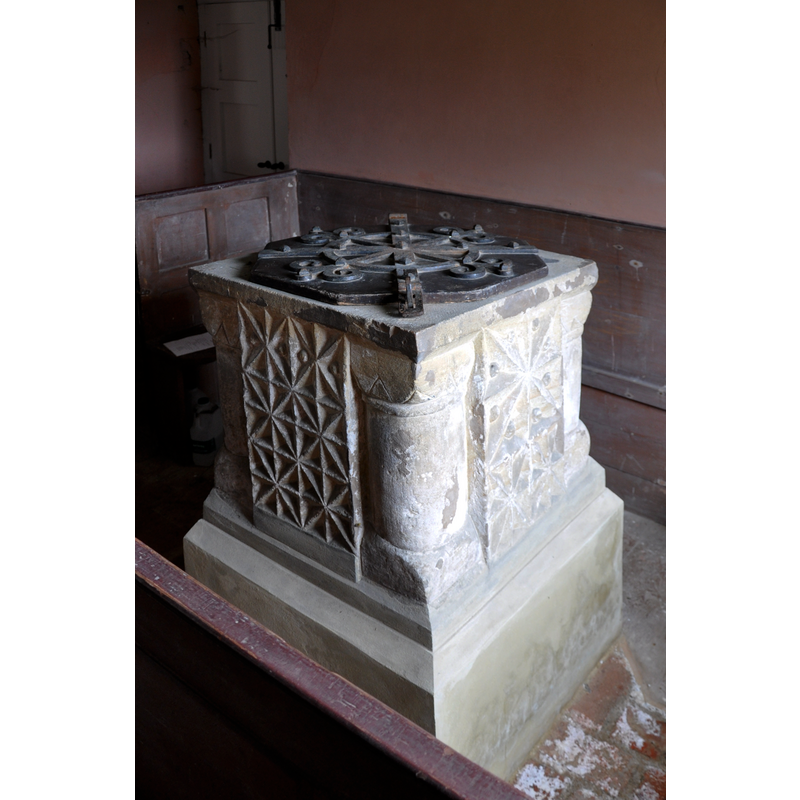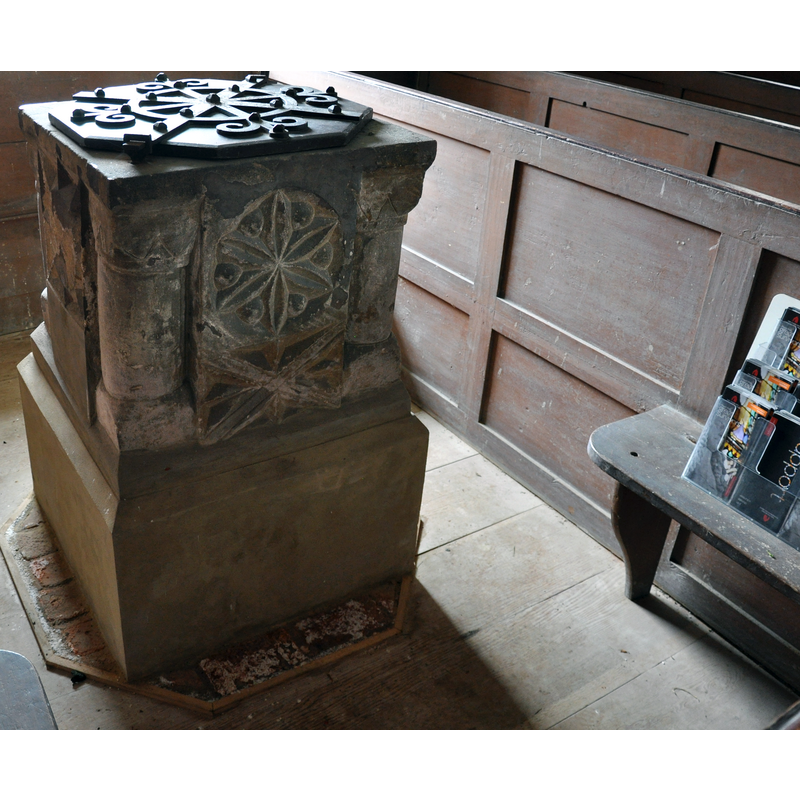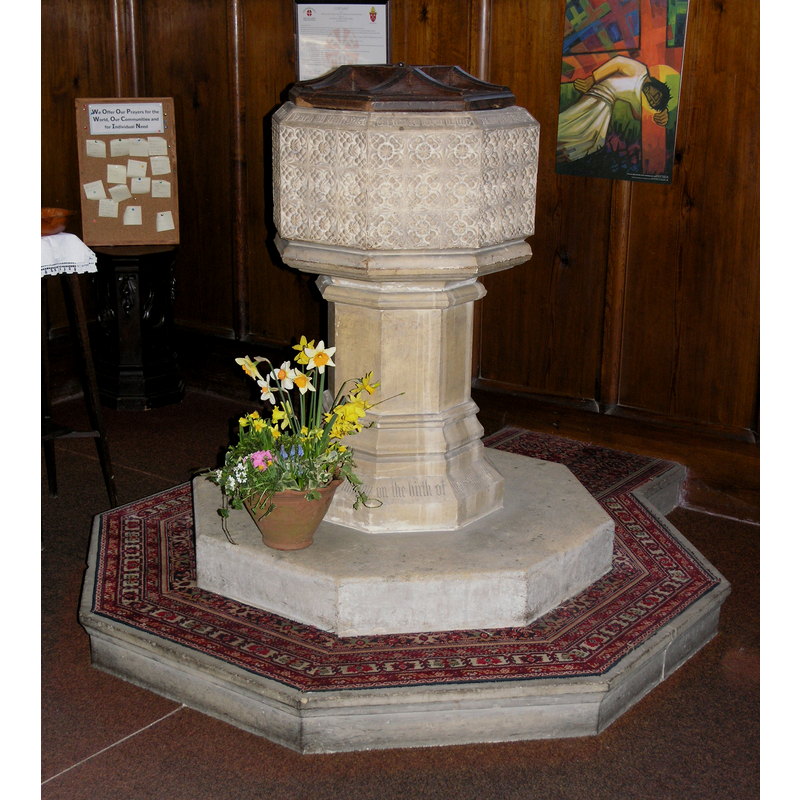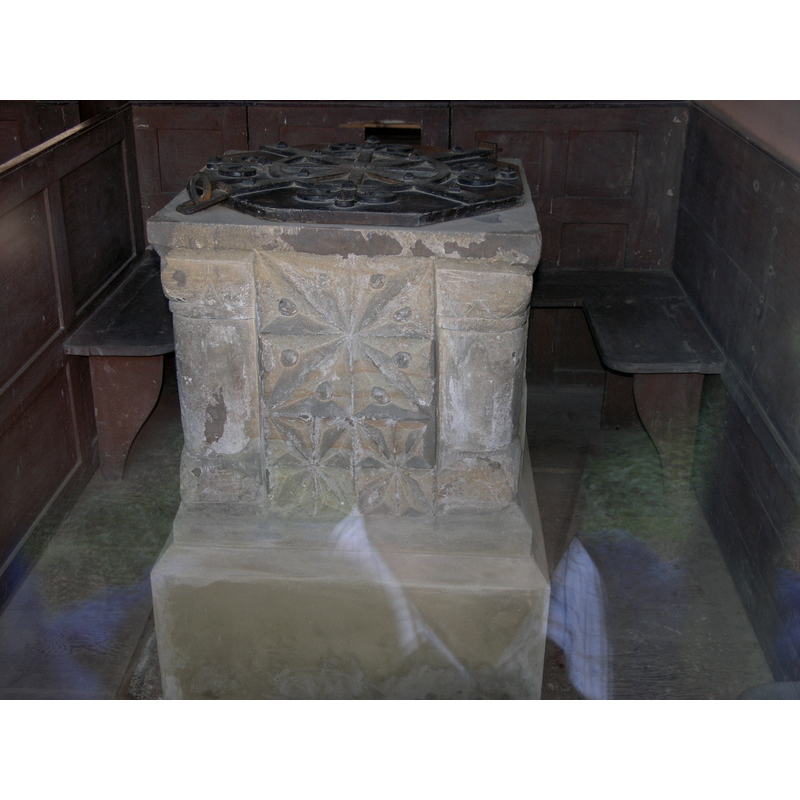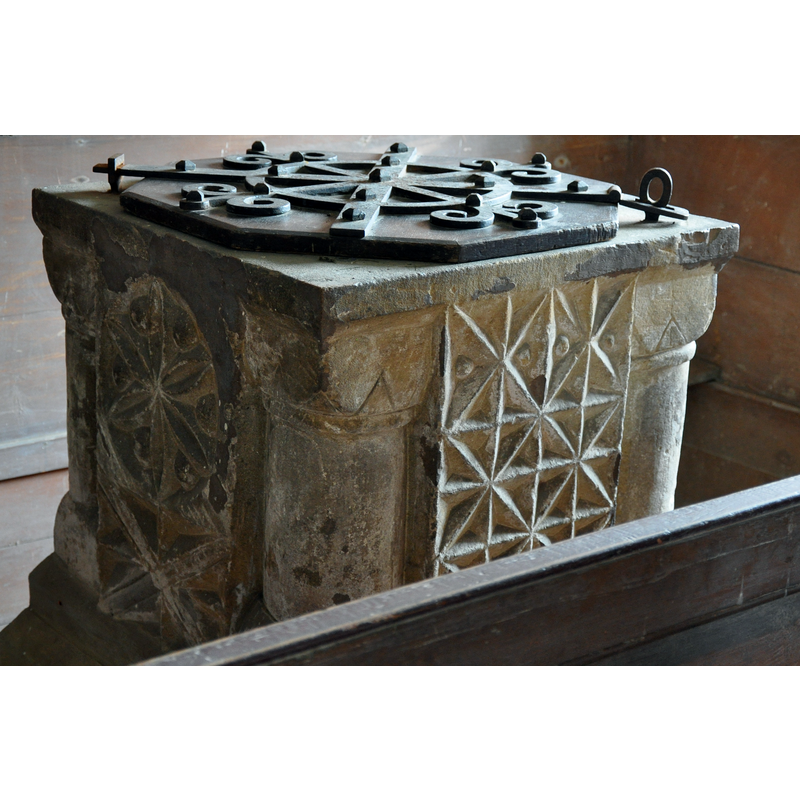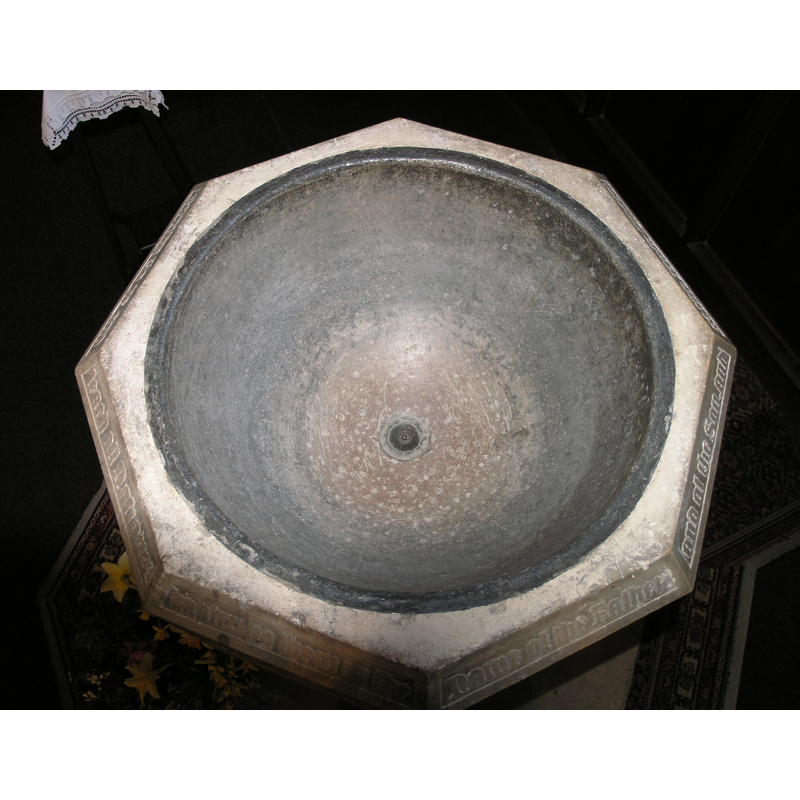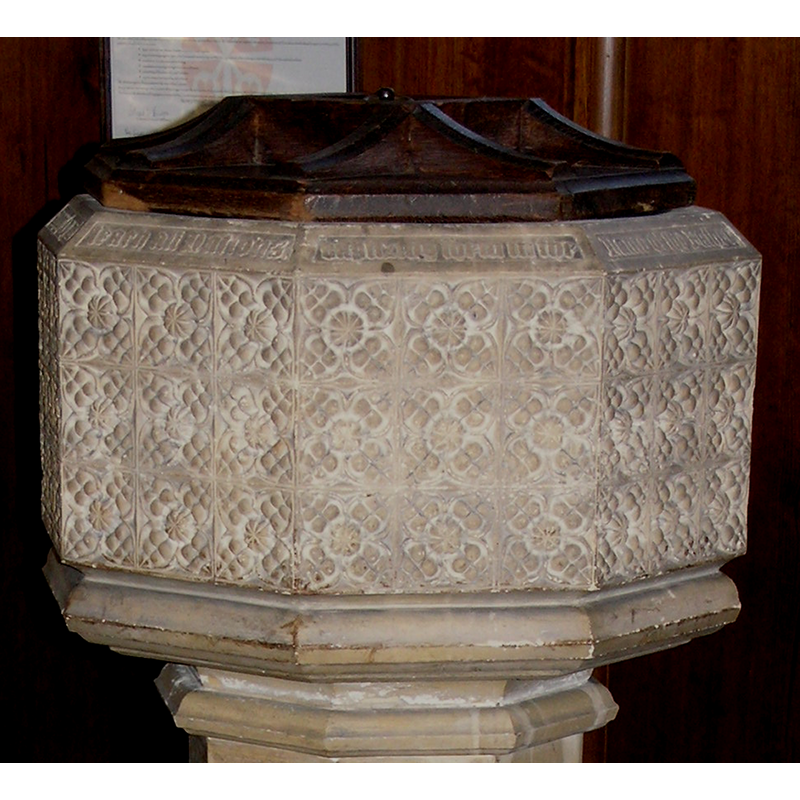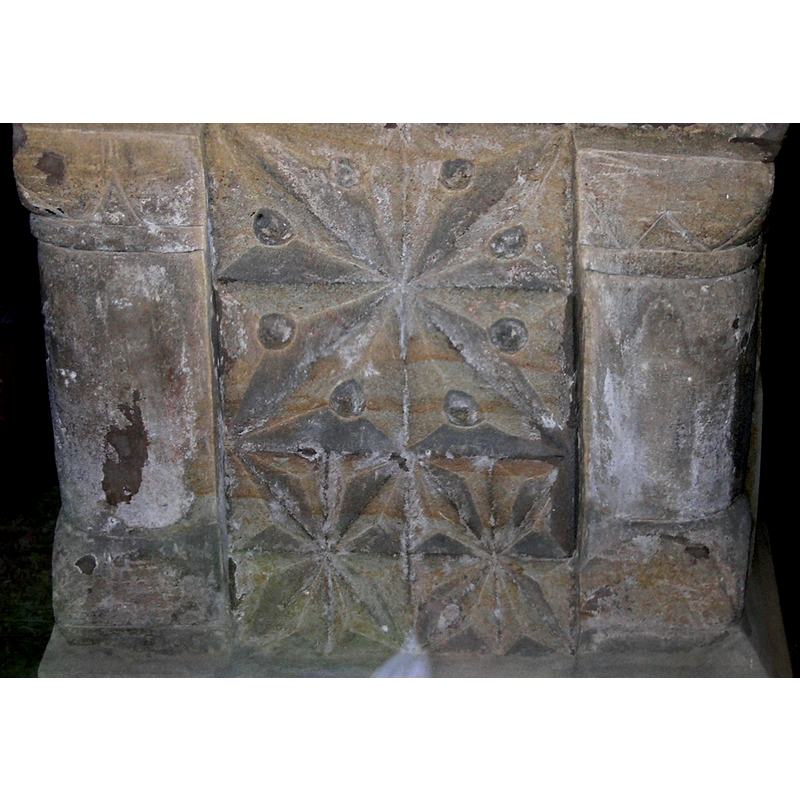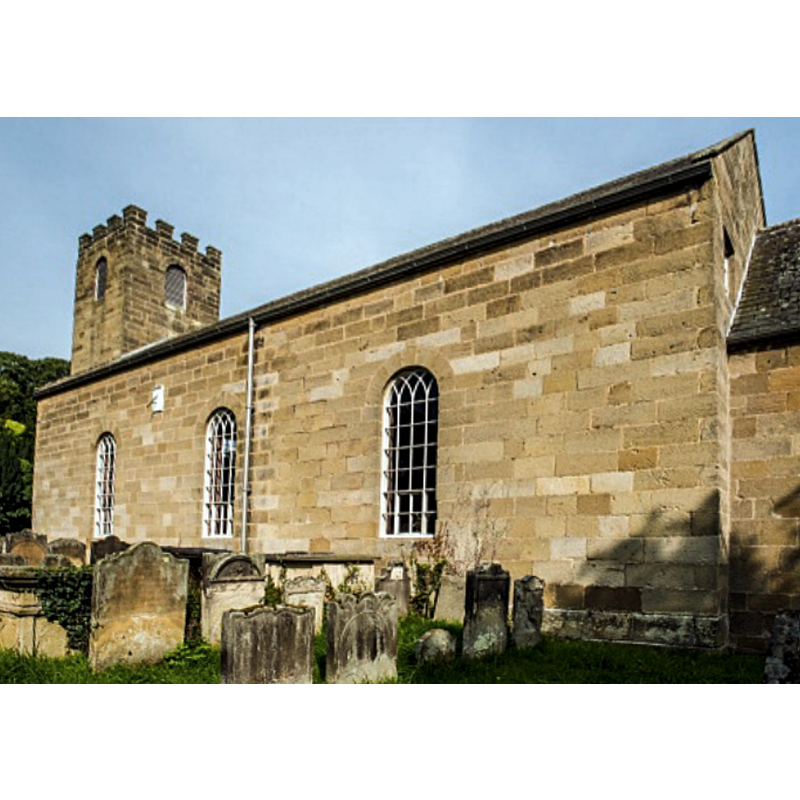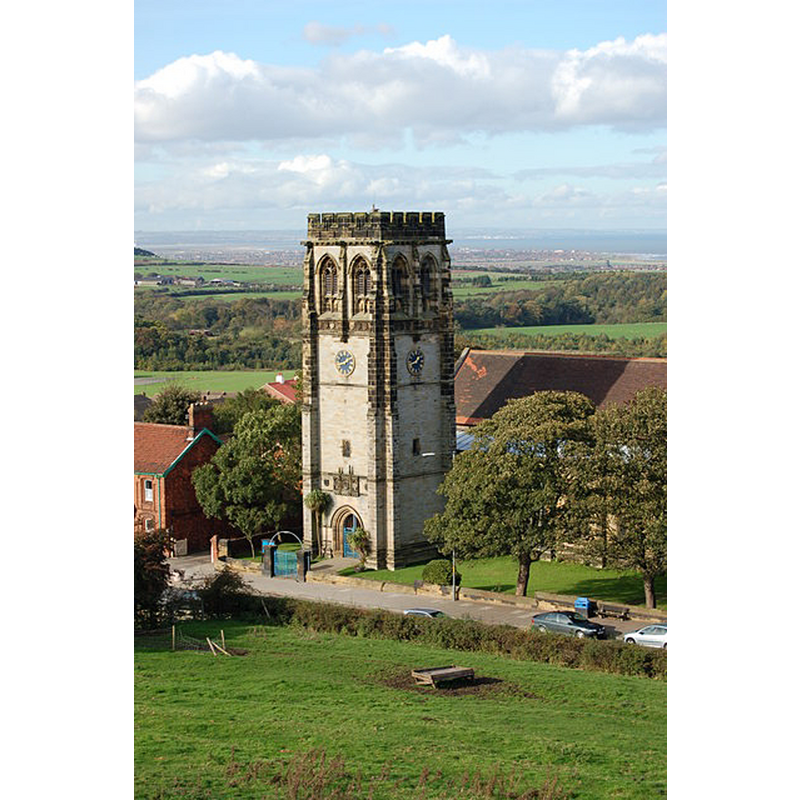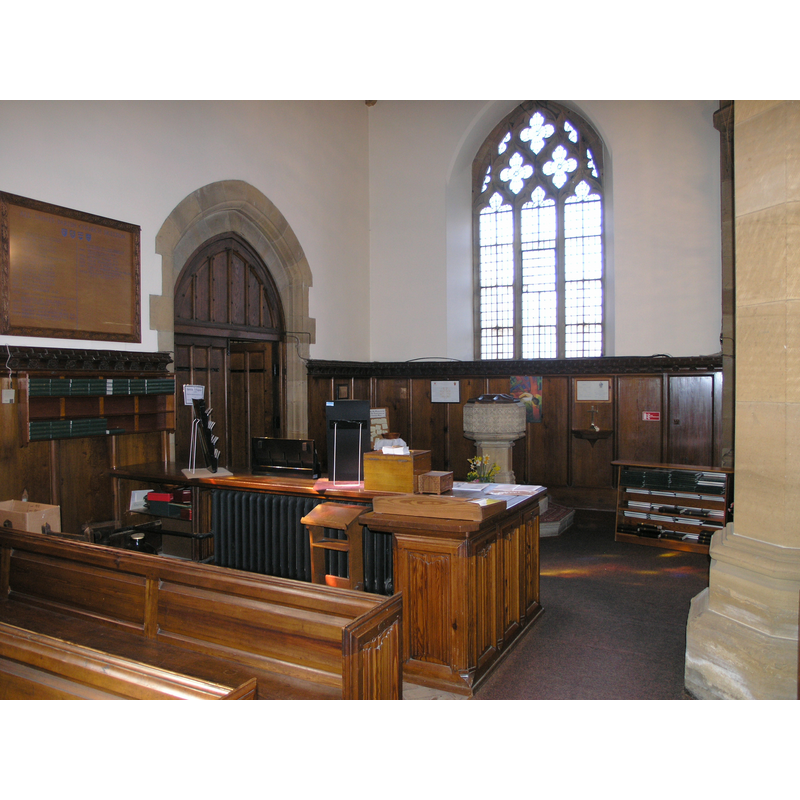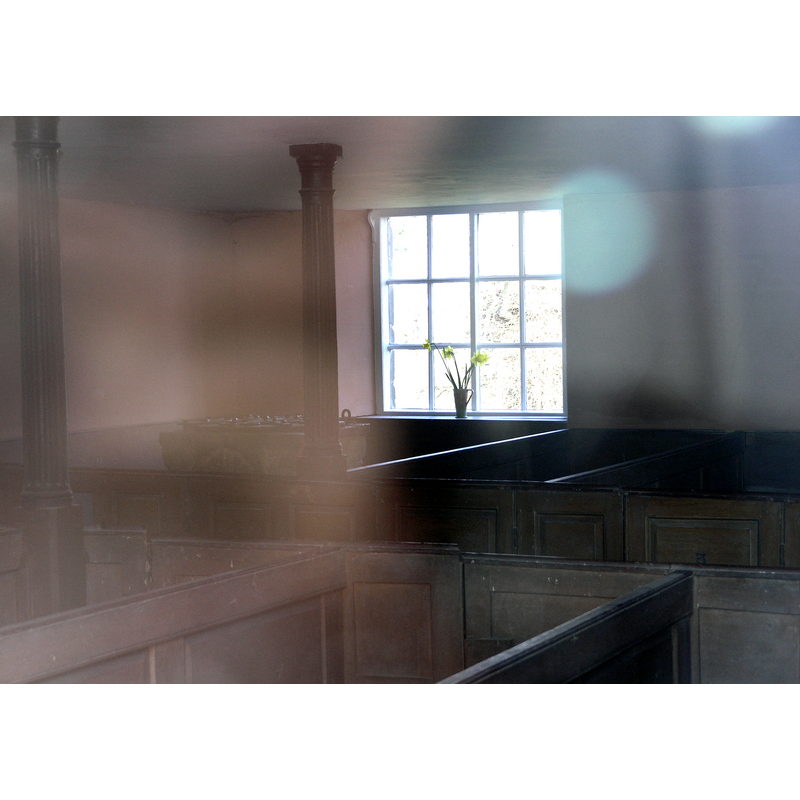Skelton-in-Cleveland / Scheltun / Skelton and Brotton / Skelton in Bulmer
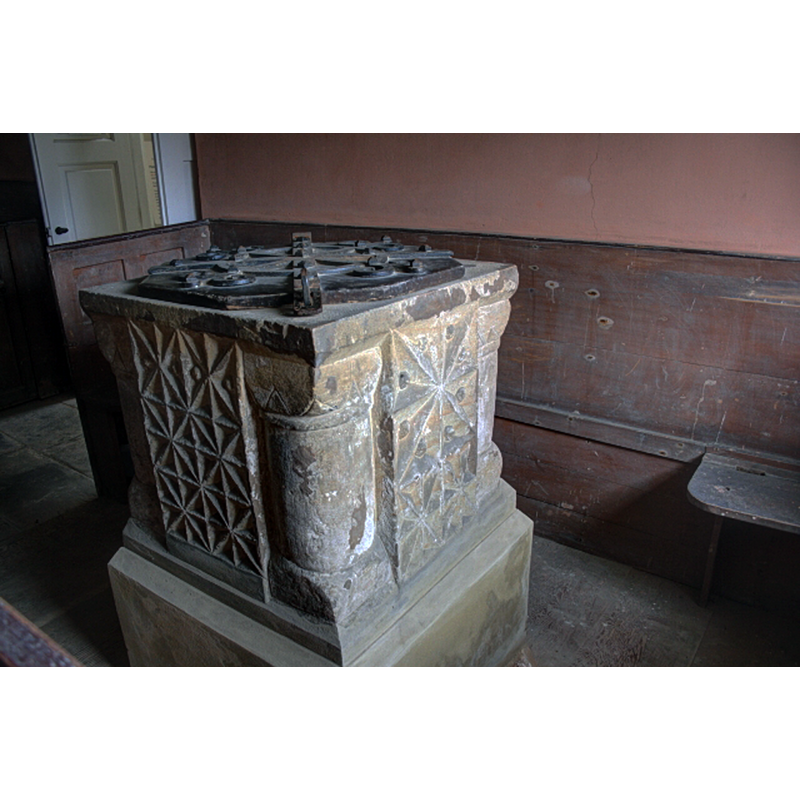
Image copyright © Mick Garratt, 2014
CC-BY-SA-2.0
Results: 20 records
view of font and cover
Scene Description: Source caption: "Font, All Saints Church. 13th Century.. Old All Saints Church, Skelton-in-Cleveland. Now redundant this church was built in 1785 and is a Grade II listed building."
Copyright Statement: Image copyright © Mick Garratt, 2014
Image Source: digital photograph taken 13 September 2014 by Mick Garratt [www.geograph.org.uk/photo/4185347] [accessed 13 December 2019]
Copyright Instructions: CC-BY-SA-2.0
view of font and cover
view of font and cover
view of font and cover
view of font and cover
view of font and cover
Scene Description: the 19th-century font
Copyright Statement: Image copyright © Colin Hinson, 2008
Image Source: digital photograph taken April 2007 by Colin Hinson [www.yorkshireCDbooks.com]
Copyright Instructions: Standing permission
view of font and cover in context
Copyright Statement: Image copyright © Colin Hinson, 2008
Image Source: digital photograph taken April 2007 by Colin Hinson [www.yorkshireCDbooks.com]
Copyright Instructions: Standing permission
design element - motifs - moulding
design element - patterns - reticular - with beads
design element - motifs - zigzag
view of basin - interior
Scene Description: of the 19th-century font
Copyright Statement: Image copyright © Colin Hinson, 2008
Image Source: digital photograph taken April 2007 by Colin Hinson [www.yorkshireCDbooks.com]
Copyright Instructions: Standing permission
view of basin
Scene Description: the basin of the 19th-century font
Copyright Statement: Image copyright © Colin Hinson, 2008
Image Source: digital photograph taken April 2007 by Colin Hinson [www.yorkshireCDbooks.com]
Copyright Instructions: Standing permission
design element - motifs - scallop
Scene Description: on the bases of the angle columns
Copyright Statement: Image copyright © Colin Hinson, 2008
Image Source: digital photograph taken April 2007 by Colin Hinson [www.yorkshireCDbooks.com]
Copyright Instructions: Standing permission
design element - motifs - floral
Scene Description: [cf. Font notes]
Copyright Statement: Image copyright © Colin Hinson, 2008
Image Source: digital photograph taken April 2007 by Colin Hinson [www.yorkshireCDbooks.com]
Copyright Instructions: Standing permission
design element - motifs - floral - with beads
Scene Description: [cf. Font notes]
Copyright Statement: Image copyright © Colin Hinson, 2008
Image Source: digital photograph taken April 2007 by Colin Hinson [www.yorkshireCDbooks.com]
Copyright Instructions: Standing permission
view of church exterior - southeast view
Copyright Statement: Image copyright © David Ross & Britain Express Ltd, 2019
Image Source: edited detail of a digital photograph by David Ross & Britain Express [www.britainexpress.com/attractions.htm?attraction=4233] [accessed 13 December 2019]
Copyright Instructions: Standing permission
view of church exterior in context
Copyright Statement: Image copyright © Vic Nicholas, 2007
Image Source: digital photograph taken 7 July 2006 by Vic Nicholas [www.geograph.org.uk/photo/356102] [accessed 13 December 2019]
Copyright Instructions: CC-BY-SA-2.0
view of church interior - southwest side
Scene Description: the 19th-century (?) font in context
Copyright Statement: Image copyright © Colin Hinson, 2008
Image Source: digital photograph taken April 2007 by Colin Hinson [www.yorkshireCDbooks.com]
Copyright Instructions: Standing permission
view of church interior - looking northwest
Scene Description: the old font visible in the corner
Copyright Statement: Image copyright © Colin Hinson, 2008
Image Source: digital photograph taken April 2007 by Colin Hinson [www.yorkshireCDbooks.com]
Copyright Instructions: Standing permission
view of font cover
INFORMATION
Font ID: 01992SKE
Object Type: Baptismal Font1
Font Century and Period/Style: 13th century, Early English
Church / Chapel Name: Old Parish Church of All Saints [redundant]
Font Location in Church: Inside the church
Church Patron Saint(s): All Saints
Church Notes: the current old All Saints' church is a 1785 re-building of a two previous churches -- the new All Saints' was built in 1884
Church Address: Church Ln, Skelton-in-Cleveland, Yorkshire TS12 2HH, UK
Site Location: North Yorkshire, Yorkshire and the Humber, England, United Kingdom
Directions to Site: Located off (S) the A173, 3 km SE of Beningbrough, about 6 km N of York
Ecclesiastic Region: Diocese of York
Historical Region: Hundred of Langbaurgh
Additional Comments: unused font / replaced font / altered font (the base is modern)
Font Notes:
Click to view
There is an entry for this Skelton [variant spelling] in the Domesday survey [https://opendomesday.org/place/NZ6518/skelton/] [accessed 18 December 2018] but it mentions neither cleric nor church in it. Cox-Harvey (1907) list two Early English fonts under the placename Skelton in Yorkshire [NB: C&H (ibid.) have two entries for Skelton, one in the North Riding and another in the West Riding, but there is no Skelton in West Yorkshire after 1974; do they refer to two different fonts of the same period?]. Morris (1931) reports a font of the Early English period in All Saints' church. [NB: the original fabric of this church is usually dated to 1227, and Bulmer's Directory of 1890 cites a roll extract dated "on the 6th day of the Ides of December, A.D. 1427" confirming the donation [source: Transcription by Colin Hinson © 1999 in www.genuki.org.uk/nig/eng/YKS/NRY/Skelton/Skelton90.html]. The Topographical Dictionary of England of 1848 notes about All Saints': "The church is a small but very handsome edifice, a curious model of the early English style, with decorated portions; it is sometimes called Little St. Peter, having been built with the stone that remained after the erection of the south transept of York Minster" [source: http://www.british-history.ac.uk/report.asp?compid=51280] [accessed: 17 June 2007]. The entry for the parish of Overton in the Victoria County History (York North Riding, vol. 2, 1923) notes on the church of All Saints at Skelton: "Though small in dimensions, as an example of early 13thcentury work it is unequalled by any other parish church in the county. The building was carefully restored in 1814 to 1818 [...] The font is contemporary with the church with an octagonal bowl chamfered back and cut into a number of facets on each side, the stem is a plain octagon and the base is moulded." The entry for All Saints' in Historic England [Listing NGR: NZ6605818994] refers only to the new church: "Church 1884-85, by R.J. Johnston (Newcastle). [...] Octagonal stone font 1859, with enriched sides to bowl, on 2 steps." The old font, located in the NW corner of the nave of the old church and no longer in use, is monolithic and square, but with demi-columns at the four angles; the capitals of these angle columns have zigzag motif decoration, whereas the bases are scalloped; the sides have a large floral motif on the upper area and two similar but smaller ones below, but the larger ones have ball or bead motif between the 'petals'; the lower base is plain and appears cemented over. The flat octagonal cover is old, with the original locking mechanism. The font in use at present [April 2007] is located in the SW corner of the nave of the old church, by the S entrance; it consists of an octagonal basin the sides of which are decorated with a closed floral pattern all around; the upper rim chamfer has a running inscription in English; the stem and lower base are octagonal and have moulding ornamentation; there is another inscription, also in English, around the lower base. The later font is probably 19th-century, of the 1884 re-building.
Credit and Acknowledgements: We are grateful to Colin Hinson, of www.yorkshireCDbooks.com, and to Hazel Pickering for their photographs of this font.
COORDINATES
Latitude & Longitude (Decimal): 54.5619, -0.9799
Latitude & Longitude (DMS): 54° 33' 42" N, 0° 58' 47" W
MEDIUM AND MEASUREMENTS
Material: stone, type unknown
Font Shape: square, mounted
Basin Interior Shape: round
Basin Exterior Shape: square
LID INFORMATION
Material: wood, oak?
Apparatus: no
Notes: [cf. FontNotes]
REFERENCES
- Victoria County History [online], University of London, 1993-. URL: https://www.british-history.ac.uk.
- Bulmer, T., History, Topography, and Directory of North Yorkshire, Comprising its Ancient and Modern History; [...], Preston: T. Bulmer & Co. (T. Snape & Co. Printers), 1890, [www.genuki.org.uk/nig/eng/YKS/NRY/Skelton/Skelton90.html]
- Cox, John Charles, English Church Furniture, New York: E.P. Dutton & Co., 1907, p. 231
- Morris, Joseph Ernest, The North Riding of Yorkshire, London: Methuen & Co., 1931, p. 351
